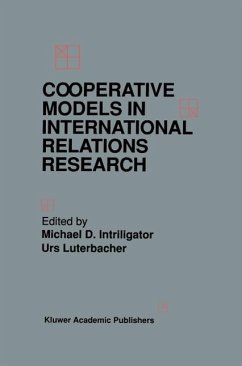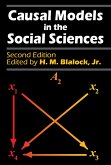Cooperative Models in International Relations Michael D. Intriligator and Urs Luterbacher Cooperation problems in international relations research have been asso ciated with a variety of approaches. Game theoretical and rational-choice perspectives have been used extensively to analyze international conflict at a bilateral two-actor level. Problems of deterrence and conflict escalation and deterrence maintaining and conflict dilemma-solving strategies have been studied with a variety ofgame theoretical constructs. These range from two by-two games in normal form (Axelrod, 1984) to sequential games. It is obvi ous that the analysis of conflict-solving strategies and metastrategies deals implicitly and some times explicitly with cooperation. ! The emphasis on cooperation-promoting strategies plays therefore an important role within rational-choice analysis of two-actor problems. However, problems ofinternational cooperation have also been tradition ally associated with literary and qualitative approaches. This is especially true for studies carried out at a multilateral or systemic level ofanalysis. The association between cooperation problems at the international level and the study of international organizations influenced by the international legal tradition have certainly contributed to this state of affairs. The concept of international regime ofcooperation (Krasner, 1983), which derives itselffrom legal studies, has been developed entirely within the context of this literary 1 2 COOPERATIVE MODELS IN INTERNATIONAL RELATIONS RESEARCH conception. However, as such studies evolved, various authors tended to use more formal constructs to justify their conclusions and to refine their analy ses.
Dieser Download kann aus rechtlichen Gründen nur mit Rechnungsadresse in A, B, BG, CY, CZ, D, DK, EW, E, FIN, F, GR, HR, H, IRL, I, LT, L, LR, M, NL, PL, P, R, S, SLO, SK ausgeliefert werden.









